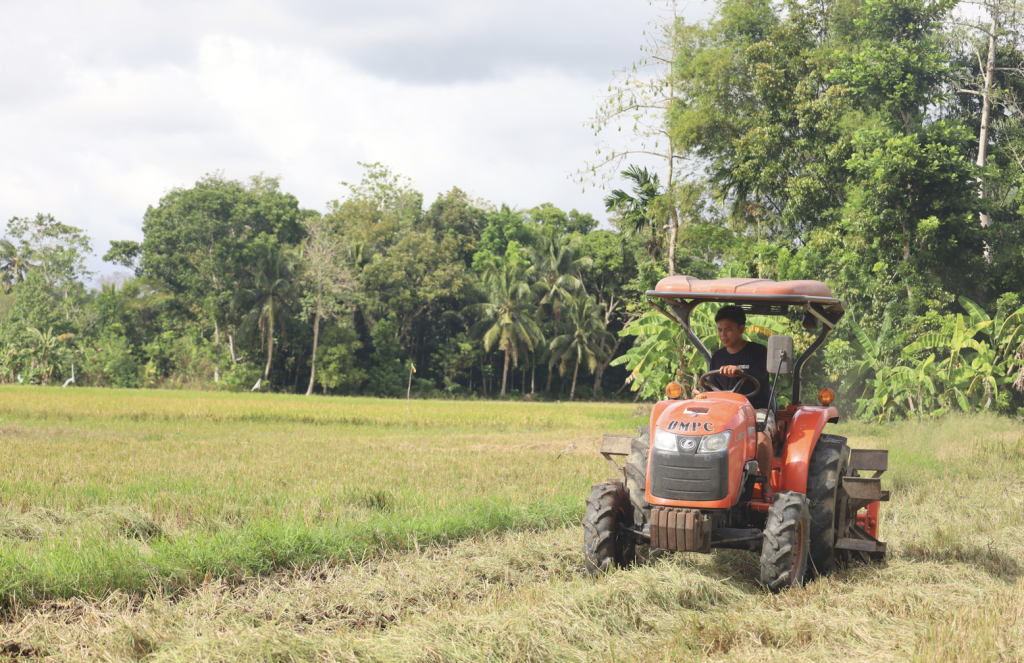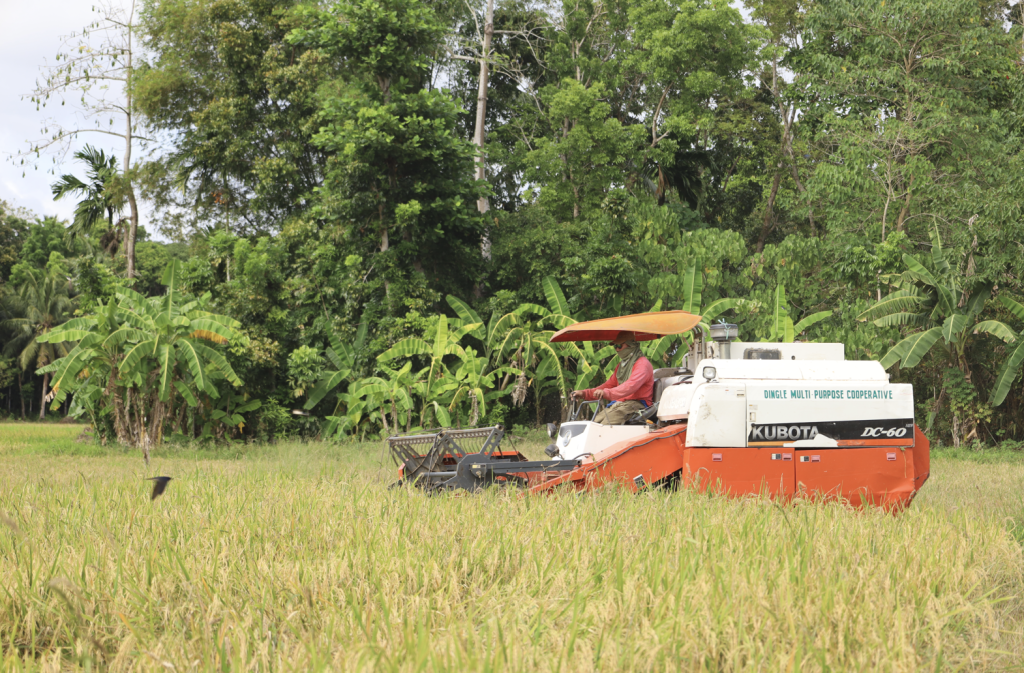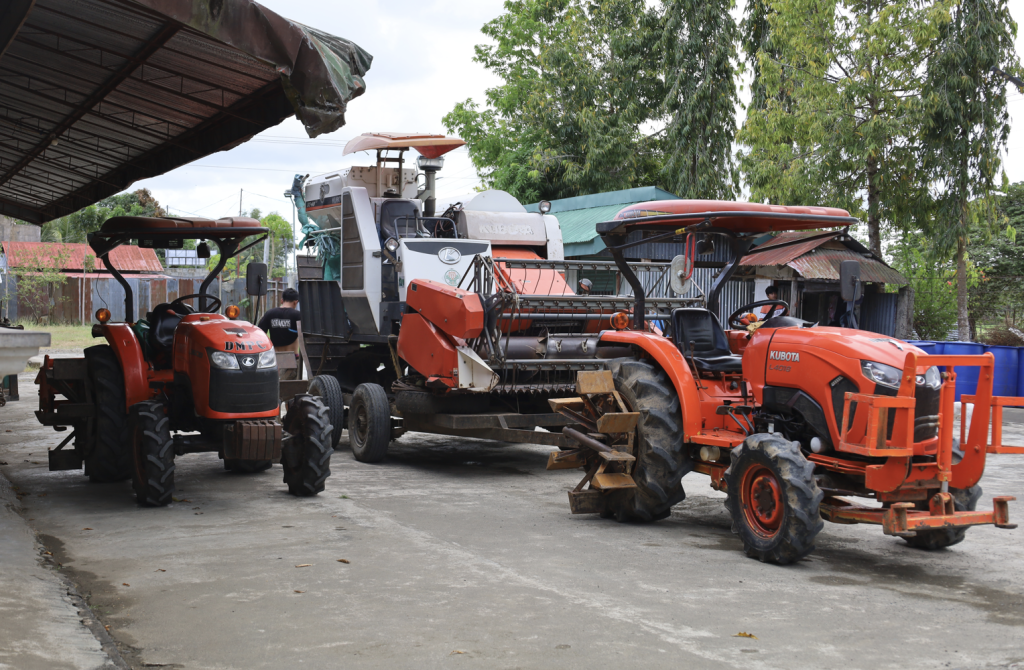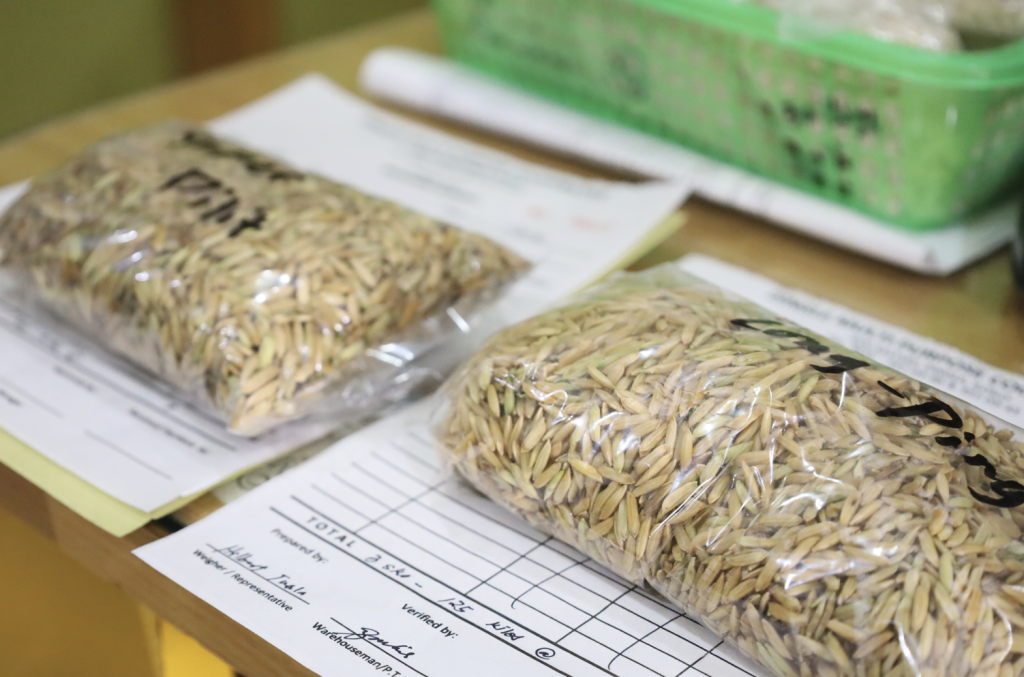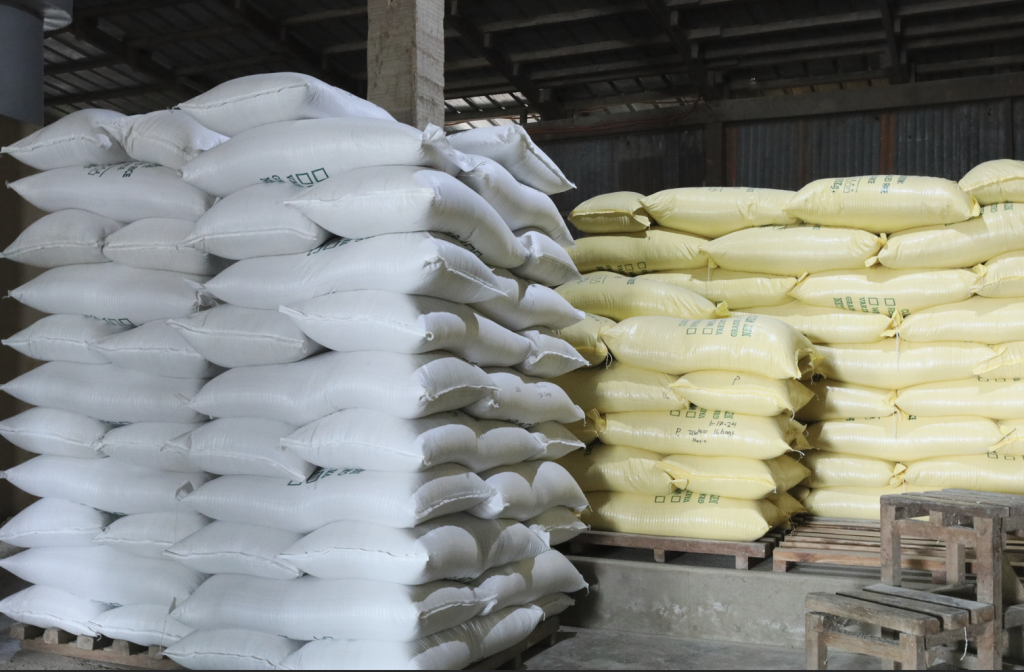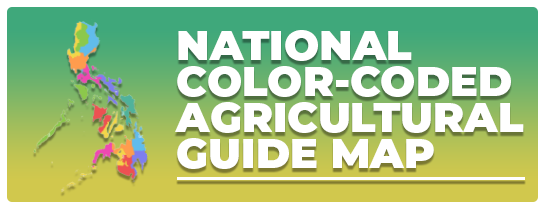Success Story of Dingle Multi-Purpose Cooperative: Standing still for farmers’ welfare
Posted by: RAFIS DA6 | Posted at: October 29, 2024
Understanding the farmers’ plight prompted a prominent group in Dingle, Iloilo, to form a farmers’ cooperative in February 1956. Initially called the Dingle FACOMA or the Farmers Marketing Cooperative, the Dingle Multi-Purpose Cooperative (MPC) was established to assist local rice farmers in overcoming several constraints in the agriculture sector, including farmers’ difficulty marketing their produce for equitable pricing, acquiring farm inputs, and securing sources of capital to continue their rice cultivation. The cooperative primarily functioned as an agricultural service cooperative involved in palay trading, rice milling, and lending to its farmer members. However, in the 1980s, the cooperative suffered bankruptcy due to poor management and the inability to meet its financial obligations. The cooperative was on the brink of collapse, with dwindling membership and no funds to pay its employees or continue its business operations.
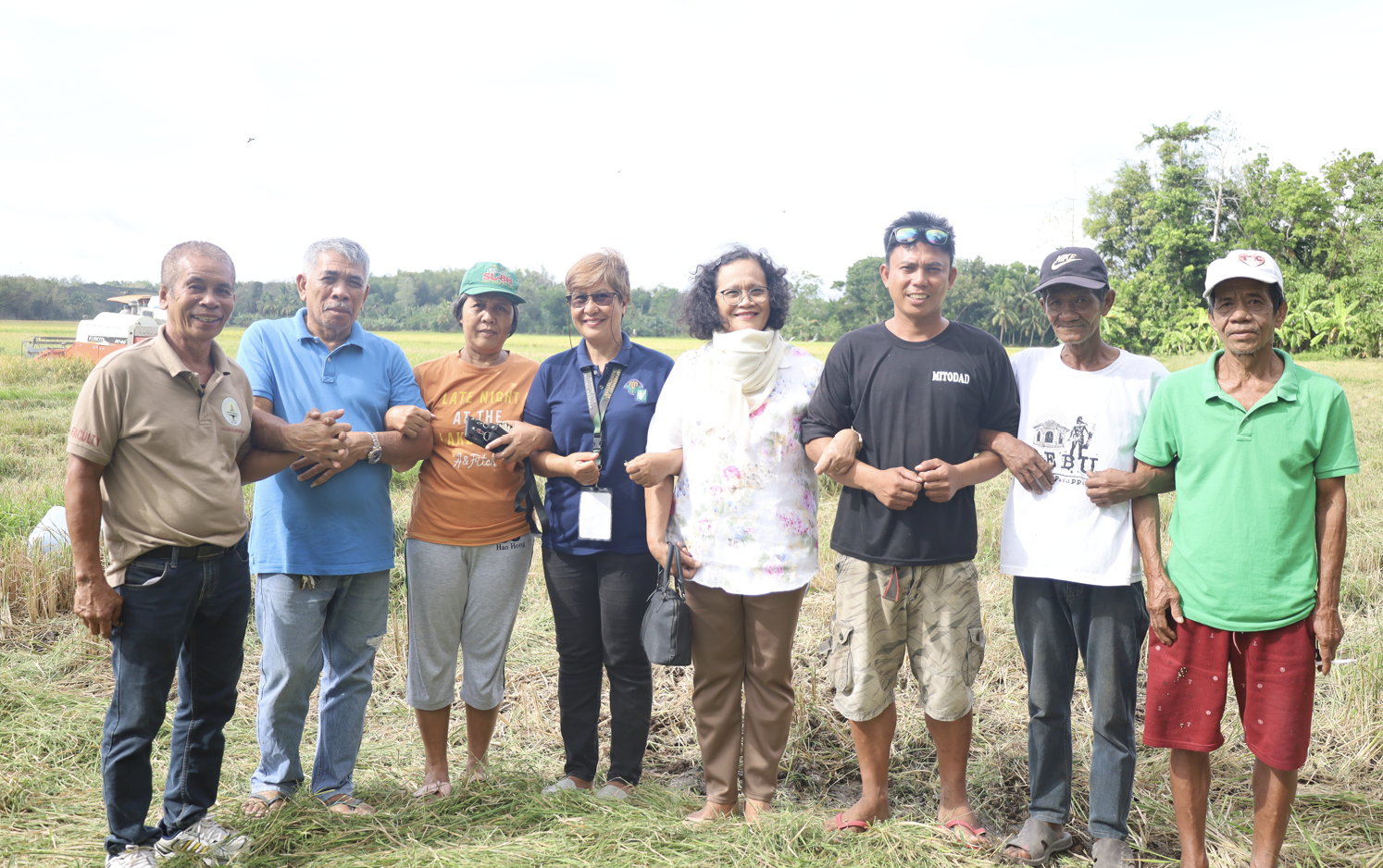
Former officials of the Dingle MPC, who are engaged in rice trading and milling enterprises, successfully secured loans from the Land Bank of the Philippines (LBP) for rice mill, warehouse renovation, and capital for palay trading. However, they failed to pay off the loan on time, which is the same as the problems encountered by other agricultural cooperatives. The cooperative’s rice mill could only process up to 10 bags of palay per hour, which could not meet the businessmen’s demand, preventing the cooperative from further obtaining profit from rice milling. Farmers who availed of agricultural loans from the cooperative also failed to repay the loans. The LBP required the cooperative to take action to pay the loan amortization, or else they have to foreclose the property collateralized by the bank.
The state-run bank intervened by educating and mobilizing the farmers’ cooperative to effectively manage their enterprises, funds, and properties. The Dingle MPC, heeding the advice of the LBP, decided to take action by assigning someone with a strong stance on transparency and cooperativism to lead and manage the cooperative.
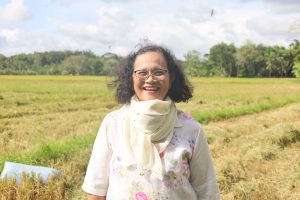 After being employed as a treasurer, Marilou Gonzaga, the present General Manager, was then installed to steer the wheel of the cooperative. Under her leadership, Dingle MPC secured loans from LBP, which were used to invest in infrastructure, such as upgrading their rice mill and renovating their warehouse. Despite initial struggles with meeting loan amortization, Gonzaga spearheaded the cooperative’s turnaround by introducing reforms in financial management, business operations, and governance. With the training provided by LBP, the cooperative set new targets, amended its constitution, and created a vision and mission that reflected its renewed purpose to thrive in the rice industry. Gonzaga, armed with a decisive will to ease the burden faced by farmers, led the cooperative out of its financial woes and set it on a path toward sustainable growth.
After being employed as a treasurer, Marilou Gonzaga, the present General Manager, was then installed to steer the wheel of the cooperative. Under her leadership, Dingle MPC secured loans from LBP, which were used to invest in infrastructure, such as upgrading their rice mill and renovating their warehouse. Despite initial struggles with meeting loan amortization, Gonzaga spearheaded the cooperative’s turnaround by introducing reforms in financial management, business operations, and governance. With the training provided by LBP, the cooperative set new targets, amended its constitution, and created a vision and mission that reflected its renewed purpose to thrive in the rice industry. Gonzaga, armed with a decisive will to ease the burden faced by farmers, led the cooperative out of its financial woes and set it on a path toward sustainable growth.
By instilling in the members the importance of safeguarding the cooperative finances, Dingle MPC saw an increase in their credit line with LBP from P1 million to P15 million. They were also able to pay off all their loans on time, which showed a solid commitment to discipline and financial growth. LBP’s support did not end there, as it continued to monitor and assist the cooperative in achieving a continuous streak of five years of excellent performance in accessing, utilizing, and repaying agricultural loans.
In spite of achieving this success, challenges persisted, specifically with the implementation of the Rice Tariffication Law (RTL) in 2019, leading to an influx of cheaper imported rice flooding the market. Local farmers, including those in Dingle, found competing increasingly difficult. Dingle MPC struggled to sell its milled rice due to the lower quality of rice milled out of Rice Processing Center I compared to the available rice imports in the domestic market. To mitigate these market changes, Gonzaga and the cooperative sought further interventions from the Department of Agriculture (DA) Western Visayas.
“We need low-interest loans for cooperatives to survive in this unstable economy. That’s why I told my officers during assembly that for the cooperative not to collapse, we should ask the DA for intervention,” says Gonzaga.
The resilience of the cooperative is evident in its ability to adapt to changing circumstances. In light of the substantial financial losses resulting from unpaid loans by farmer members, Dingle MPC made the decision to temporarily suspend its cash loan services to farmers and instead shifted towards farm input trading, providing loans in the form of chemicals and fertilizers. This strategic shift minimized the cooperative’s risks while still supporting the agricultural needs of its members.
While evolving, the cooperative expanded its services by offering mechanized farming equipment like rice combine harvesters and four-wheel drive tractors through its Farm Service Provider (FSP) Program. These innovations helped modernize farm operations in Dingle, reducing labor costs and improving efficiency, especially during typhoon seasons when quick harvests were highly necessary. Similar to the experiences in other farming communities, farmers initially resisted the introduction of modern machinery but gradually recognized the benefits of mechanization in the rice value chain. Presently, farmer members of the cooperative can have their rice fields leveled properly during land preparation by paying only P4,000.00 per hectare for the four-wheel drive tractor operation, and their rice reaped using rice combine harvesting for only P7,500.00 per hectare.
The DA’s interventions strengthened Dingle MPC’s operations and capacity to serve the municipality’s rice-farming communities even more. In 2018, they applied as a lending conduit of the DA-Agricultural Credit Policy Council (ACPC) and were granted access to several loaning windows such as the Production Loan Easy Access, Survival and Recovery Loan, and Agri-Negosyo Loan Programs. The cooperative’s accreditation helped many farmers in Dingle to push forth their rice production by availing themselves of the no-interest loans.
“The DA-ACPC lauded us for our consistently good performance in our loan repayment, which is driven by our strategy in collecting payment from our farmer-members directly from the palay they deliver to the cooperative during harvest,” shared Gonzaga.
Obtaining Civil Society Organization (CSO) accreditation, Dingle MPC was also recognized as an eligible implementing partner of the DA Western Visayas to carry out agri-fishery projects in the region aimed at assisting farmers in enhancing their production and income and on top of the agricultural loans and farm equipment granted to the cooperative, DA Regional Rice Program also tapped the Dingle MPC’s agricultural store as accredited fertilizer merchant of the Fertilizer Discount Voucher (FDV) Program which provided them the opportunity to secure guaranteed market for their inputs.
Also, in order to keep the food production chain going during the COVID-19 pandemic, the DA implemented the Cash and Food Subsidy Program to help eligible smallholder farmers and fisherfolk recover from economic losses. Once again, Dingle MPC was chosen as the supplier of chicken, eggs, and milled rice for the program. From that, they were able to reach P8 million in sales even in the time of the pandemic.
At the core of Dingle MPC’s operations are transparency and strong governance, with Gonzaga underscoring the significance of proper training for both members and officers. Officers are required to undergo pre-qualification and must first serve as committee members before being considered for leadership roles. This ensures that the cooperative is run by individuals who understand the complexities of cooperative management and are committed to its long-term sustainability and success.
Accessing critical support from agencies like the DA and LBP and aligning with government programs has been instrumental in Dingle MPC’s thriving path. The cooperative’s accreditation by the Philippine Crop Insurance Corporation (PCIC) has enabled it to offer crop insurance to its members, providing a safety net in the event of crop losses due to typhoons, flooding, or pest infestations.
The cooperative remained solid and steadfast in its goal of supporting its members, particularly the local rice farmers. The cooperative continues to push for more interventions and upgrades, such as a new rice mill and an improved irrigation system, to help farmers produce low-cost, high-quality rice that can compete in the broader market.
The cooperative plans to further strengthen its marketing strategies, improve its farm services, and expand its membership base. As a 68-year-old cooperative, Dingle MPC models how cooperatives can overcome adversity through innovation, strategic partnerships, and a deep commitment to serving its members. The cooperative’s triumph is not only a story of financial recovery but also one of perseverance, teamwork, and shared vision among its members. Marilou Gonzaga’s leadership and the collective effort of its members have turned Dingle MPC into a pillar of a stable, sustainable, and profitable enterprise driven by farmers who aim to make the country stable and food-secure.###By SMHToreno/Photos by AMSTabura/DA-RAFIS 6


